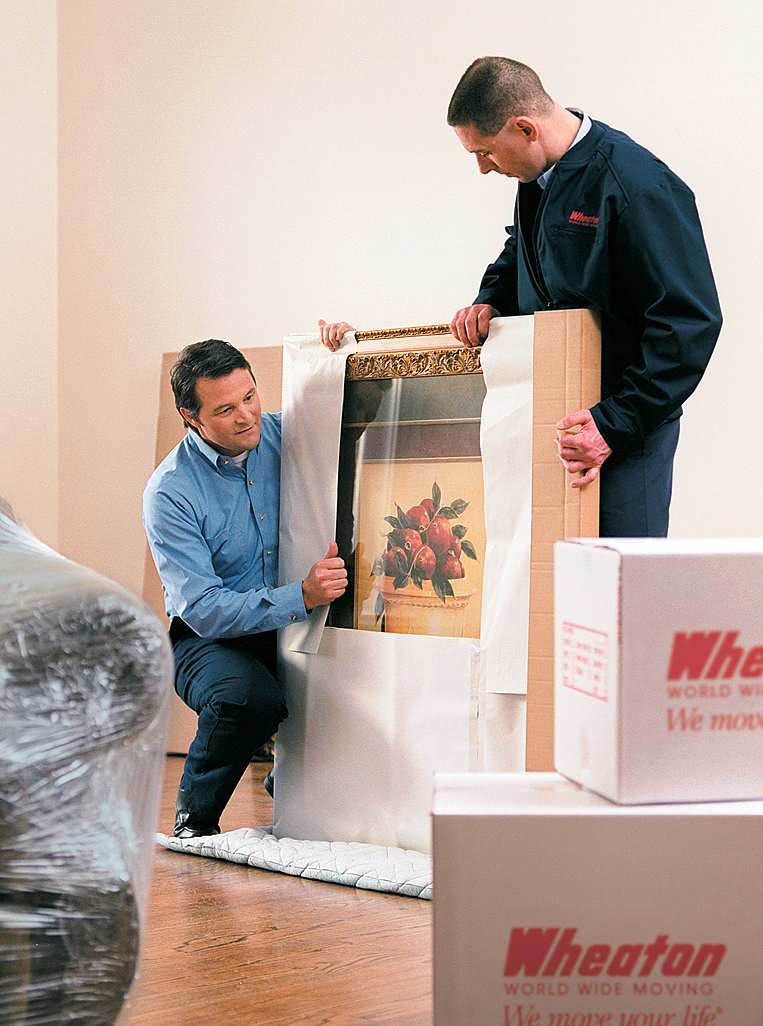
Discover how to hire packers for moving and the best pro for the job. Learn pro services, costs, and tips to compare quotes and book with confidence.
The average moving truck rental cost is $1,000
On average, renting a moving truck costs $30 to $3,500, with costs potentially reaching $5,300 for extensive cross-country relocations.
Local moves can be as affordable as $10 for short distances, while larger homes moved across states require substantial budgets.
Vehicle size directly influences pricing, with smaller vans starting at $19.95 plus mileage and larger trucks commanding premium rates.
Additional expenses include insurance protection ($10 to $35 daily), fuel consumption, and taxes (6% to 10% of rental cost).
Planning your move during off-peak seasons and weekdays can significantly reduce your rental expenses.
This article was created using automation technology and thoroughly fact-checked and edited by HomeAdvisor Editor Ryan Noonan.
Average moving truck costs vary considerably, falling between $30 and $3,500, with the national average at $1,000. For extensive cross-country relocations, prices can reach as high as $5,300, depending on various factors. Understanding what influences these costs—from vehicle selection to timing—helps you create an accurate budget for your upcoming move and avoid unexpected expenses along the way.
Rental companies determine pricing based on several key variables, including truck dimensions, travel distance, and rental duration. Understanding these elements helps you anticipate costs before committing to a reservation. Here are the primary factors that will shape your final invoice.
One-way rentals cost more because rental companies need to reposition their vehicles afterward. For specific home sizes, a one-bedroom residence moved one way often costs between $1,790 and $2,210, while relocating a two-bedroom home across 1,000 miles starts at $2,000 or higher.
| Move Type | Distance | Cost Range |
|---|---|---|
| Local move | 1-50 miles | $10-$200 |
| One-way move | 50-400+ miles | $300-$2,000+ |
| Cross-country | 1,000+ miles | $2,000+ |
Selecting a larger truck increases your base rental cost but may reduce the total expense by allowing you to complete your move in a single trip. Choosing a vehicle that's too small could result in multiple journeys and higher overall mileage charges. Most rental providers offer online guides to help you select the appropriate truck size for your specific needs.
| Truck Size (Ft.) | Daily Rate | Best For |
|---|---|---|
| Pickup/cargo van | $19.95 + mileage | Studio apt, small items |
| 10–12 | $20–$30 | Studio–1 bedroom apt |
| 14–20 | $30–$80 | 1–2 bedroom home |
| 22–26 ft | $40–$130 | 3–4 bedroom home |
Local moves combine a daily fee with per-mile charges, while weekly rates may offer better value for longer journeys. Late returns can trigger substantial additional fees, so it's advisable to build extra time into your schedule to avoid costly penalties.
| Duration | Cost Range | Notes |
|---|---|---|
| Daily | $20-$100 | Suitable for brief local relocations |
| Weekly | $140-$700 | More economical for longer distances |
| Extended | Varies | Contact companies for extended rental rates |
Local truck rentals add $0.20 to $0.99 per mile beyond the base daily rate. Long-distance one-way rentals often include a predetermined mileage allowance, with additional charges for exceeding this limit. Underestimating your total travel distance is a common error that can significantly increase your final bill. Mapping your route in advance and adding a buffer for detours helps create a more accurate budget.
Rental rates increase during periods of high demand, such as weekends, summer months, and holidays. If your schedule permits, consider booking your truck during winter or on weekdays to secure more favorable rates.
If you need to transport a vehicle behind your moving truck, expect to pay an additional $45 to $100 for towing equipment. Towing increases fuel consumption substantially due to the added weight. Be sure to verify that your rental truck is compatible with towing equipment and check the weight limitations before making arrangements.
Standard personal auto insurance policies often don't extend coverage to rental trucks. Optional protection plans cost between $10 and $35 per day, depending on the level of coverage selected. These plans may include damage waivers, cargo protection, and personal accident insurance. Some premium credit cards offer rental coverage, though many exclude larger moving vehicles.
Budget for an additional 6% to 10% in taxes on your truck rental. Many locations also impose environmental fees or local surcharges. To prevent unexpected costs, request a comprehensive breakdown of all taxes and fees when obtaining quotes from rental companies.
Moving trucks are notably less fuel-efficient than passenger vehicles, often achieving only 10 to 20 miles per gallon. Calculate your estimated fuel expenses by dividing your total distance by the truck's MPG rating, then multiplying by current fuel prices. Consider these strategies to minimize fuel consumption:
Maintain moderate speeds
Minimize idling time
Plan routes that avoid steep grades and congestion
Reduce cargo weight when possible
Be prepared for these common supplementary expenses:
Packing materials: $100–$200
Storage facilities: $240 monthly or $1–$1.80 per square foot
Supplemental moving insurance: 1% of total item value
Consider these cost-saving strategies to make your moving truck rental more budget-friendly:
Reserve your vehicle well in advance.
Maintain flexibility with your moving dates.
Obtain quotes from multiple local moving companies that offer truck rentals.
Compare total costs, including mileage, for different truck options.
Evaluate whether a trailer rental might work for smaller moves.
Inquire about available discounts through memberships or affiliations.
Reduce your inventory through donations or sales before moving.
Return the truck on time with a full fuel tank to avoid penalties.
Consider shipping certain items separately if it allows for a smaller rental.
Look for special one-way deals on routes where companies need to relocate vehicles.
A DIY local move with a rental truck costs between $130 and $190, though you'll handle all loading, driving, and unloading yourself. Professional moving services for local relocations (within 100 miles) average $1,720, or approximately $25 to $50 hourly, but include labor, equipment, and often insurance coverage. For longer distances, DIY truck rentals range from $1,000 to $3,500, while full-service professional moves average $4,800 for cross-country relocations.
No place is more important than your home, which is why HomeAdvisor connects homeowners with local pros to transform their houses into homes they love. To help homeowners prepare for their next project, HomeAdvisor provides readers with accurate cost data and follows strict editorial guidelines. After a project is complete, we survey real customers about the costs to develop the pricing data you see, so you can make the best decisions for you and your home. We pair this data with research from reputable sources, including the U.S. Bureau of Labor Statistics, academic journals, market studies, and interviews with industry experts—all to ensure our prices reflect real-world projects.
From average costs to expert advice, get all the answers you need to get your job done.

Discover how to hire packers for moving and the best pro for the job. Learn pro services, costs, and tips to compare quotes and book with confidence.

Can you hire movers to load a moving truck? Learn who to hire, what they do, and costs and hourly rates before you book.

Wondering who moves sheds? See who to hire, how pros relocate sheds, and what it costs so you can plan a safe, stress-free move.

Who to hire to move furniture in your home? Learn why professional movers are best, how they work, and what costs to expect

Use this guide to budget for how much it costs to move a mobile home based on factors such as trailer size, moving distance, permits, and more.

Budget for a cross-country move by exploring how cost factors such as your home size, required services, and moving supplies affect your total bill.